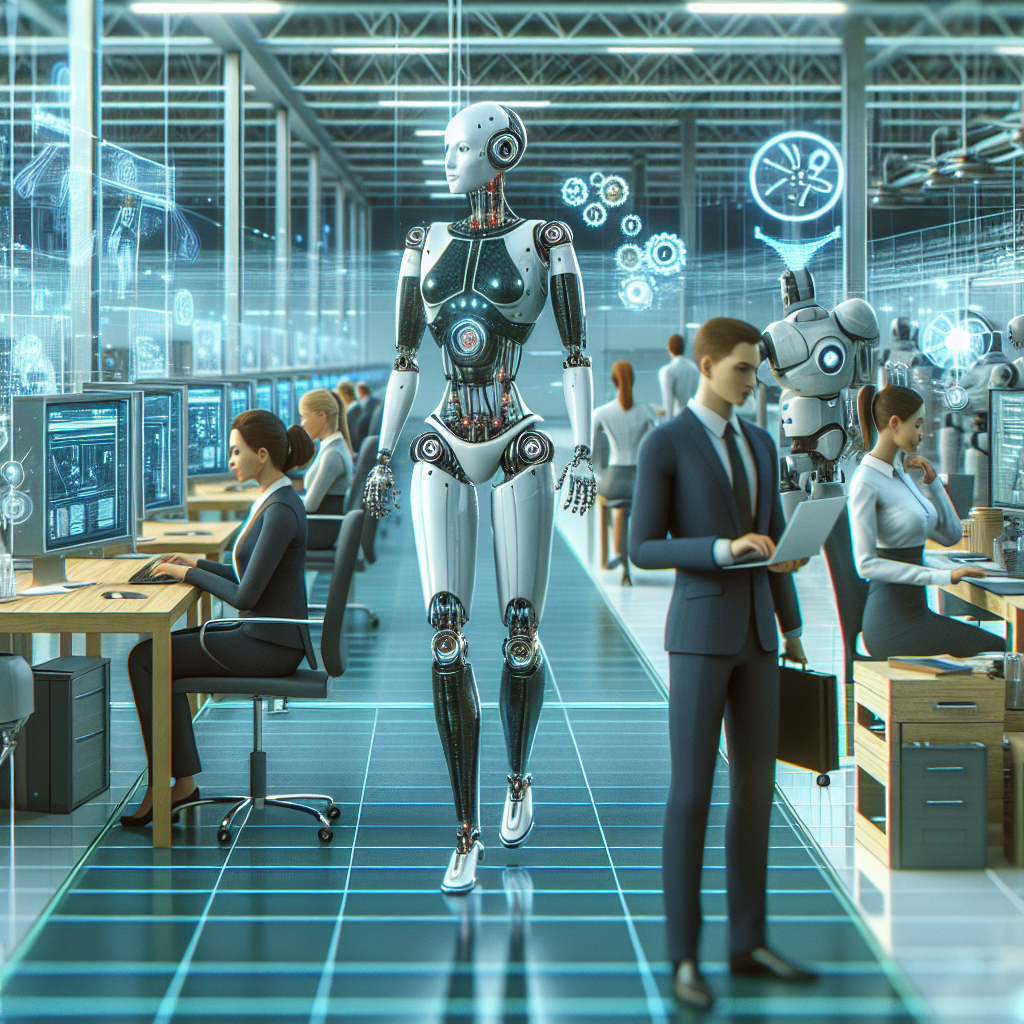The Future of Work: AI, Automation, and Sustainable Employment
In the rapidly evolving landscape of the 21st century, the future of work is a hot topic among economists, technologists, and policymakers. The rise of artificial intelligence (AI), automation, and the quest for sustainable employment are at the forefront of discussions about the future labor market. These technological advancements are not merely trends but are shaping the foundation of how we work, the nature of jobs, and the skills required for the future workforce.
The Intersection of AI and Work
Artificial intelligence is transforming industries, from manufacturing to healthcare, by enhancing efficiency, productivity, and innovation. AI’s capability to process and analyze large datasets is revolutionizing decision-making processes and operational efficiencies. However, the integration of AI in the workplace also raises questions about job displacement and the need for workers to adapt to coexist with intelligent machines. The future of work will increasingly rely on leveraging the synergies between human intelligence and AI, fostering a collaborative environment where each complements the other.
Automation and Employment
Automation, powered by AI, robotics, and other technologies, is reshaping the nature of work. Routine, manual tasks are the most susceptible to automation, while jobs requiring creativity, emotional intelligence, and complex problem-solving are less likely to be replaced. This shift necessitates a reevaluation of skills and education systems to prepare the workforce for the jobs of the future. Moreover, automation presents an opportunity to eliminate mundane tasks, allowing humans to focus on higher-value work that machines cannot replicate.
The Path to Sustainable Employment
Sustainable employment refers to jobs that are both economically viable and environmentally sustainable. As the world grapples with climate change, there is a growing demand for jobs in renewable energy, sustainable agriculture, and green technologies. The transition to a green economy requires a skilled workforce capable of driving innovation in these sectors. Governments, educational institutions, and businesses must collaborate to provide the training and resources needed for workers to thrive in these emerging industries.
Strategies for Navigating the Future of Work
Lifelong Learning
In the face of constant technological advancements, lifelong learning is no longer optional but a necessity. Workers must be willing to continually update their skills and adapt to new technologies. Educational systems should emphasize STEM (science, technology, engineering, and mathematics) education, while also fostering creativity, critical thinking, and social skills.
Policy and Regulatory Frameworks
Governments play a crucial role in shaping the future of work through policy and regulation. Policies that encourage innovation, support worker retraining, and promote sustainable practices are essential. Additionally, social safety nets must be strengthened to assist those displaced by technological changes.
Corporate Responsibility
Companies have a responsibility to their employees to ensure a smooth transition in the face of automation and AI integration. Investing in employee training, fostering a culture of innovation, and ensuring fair labor practices are steps in the right direction.
Embracing Flexibility and Remote Work
The COVID-19 pandemic accelerated the adoption of remote work, demonstrating its viability and benefits. Companies should continue to embrace flexible work arrangements, which can lead to increased productivity, employee satisfaction, and access to a global talent pool.
The Role of Government and Education
To address the challenges and opportunities presented by AI, automation, and sustainable employment, proactive measures by governments and educational institutions are paramount. This includes investing in STEM education, creating incentives for sustainable business practices, and implementing policies that protect workers while encouraging technological advancement.
Conclusion
The future of work is undeniably intertwined with AI, automation, and the shift towards sustainable employment. While these changes present challenges, they also offer opportunities for growth, innovation, and the creation of new industries. By embracing lifelong learning, adapting policies and education systems, and prioritizing sustainability, we can navigate the future of work successfully.
FAQs
How will AI and automation affect jobs?
AI and automation will transform many jobs, automating routine tasks and creating demand for new skills. While some jobs may be lost, new ones will emerge, particularly in tech, green industries, and roles requiring human creativity and emotional intelligence.
What skills will be most important in the future?
Skills in technology, problem-solving, critical thinking, creativity, and emotional intelligence will be highly valued. Additionally, the ability to adapt and learn new skills continuously will be crucial.
Can AI take over all jobs?
No, AI is unlikely to take over all jobs. Many jobs require human empathy, creativity, and complex decision-making that AI cannot replicate. The future will likely involve humans and AI working together, each complementing the other’s strengths.
How can I prepare for the future of work?
Staying curious, embracing lifelong learning, and acquiring skills in technology, critical thinking, and communication can prepare you for the future of work. Additionally, being adaptable and open to change is crucial.
What role do governments have in the future of work?
Governments have a significant role in creating policies that encourage innovation, support workers through transitions, invest in education and training, and promote sustainable employment practices.

